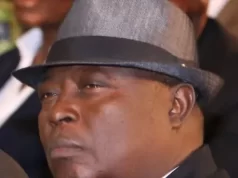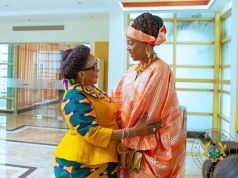Ghana’s Catholic Bishops’ Conference and the Christian Council of Ghana have publicly condemned their exclusion from a pivotal National Education Forum set to convene in Ho, Volta Region, calling the snub a blow to inclusive policymaking.
In a sharply worded joint statement, the two influential religious bodies argued that sidelining faith-based organizations—which operate a significant portion of the country’s schools—risks undermining efforts to reform education in line with Ghanaian values.
“We are not mere spectators but active contributors to Ghana’s educational fabric,” the groups declared, emphasizing their decades-long role in managing schools that serve children across religious and socioeconomic divides. The forum, designed to shape national education strategies, has sparked frustration among religious leaders who view their absence as contradictory to the government’s rhetoric of collaboration.
The Christian Council and Catholic Bishops highlighted their schools’ legacy of providing accessible, values-driven education, particularly in underserved communities. Their exclusion, they argued, disregards their expertise and ignores a foundational truth: faith-based institutions educate nearly 30% of Ghana’s primary and secondary students, according to recent estimates. “Effective policies cannot be crafted in a vacuum,” the statement read. “They require the voices of those who have walked the walk.”
The controversy underscores a simmering tension between Ghana’s government and religious organizations, which have historically filled gaps in public service delivery. Critics argue that excluding these groups from high-stakes discussions could alienate key partners, jeopardizing buy-in for future reforms. Others, however, speculate the move reflects a broader shift toward secularizing education governance—a notion the religious bodies reject. “This is not about doctrine,” the statement clarified. “It’s about ensuring every stakeholder has a seat at the table.”
The Ministry of Education has yet to respond to the criticism. Meanwhile, the bishops and Christian Council have renewed calls for transparency, urging authorities to “correct this oversight” and foster dialogue grounded in mutual respect.
Analysts note the dispute mirrors wider debates in Africa, where faith-based organizations often clash with governments over their role in public sectors they helped build. In Ghana, where religious and cultural identity are deeply intertwined, the fallout could ripple beyond education. For now, the groups stress their doors remain open: “We stand ready to collaborate—not as adversaries, but as patriots invested in Ghana’s future.”
No date has been announced for the rescheduled forum.
Read the GCBC and CCG statement below:

Send your news stories to newsghana101@gmail.com
Follow News Ghana on Google News


















